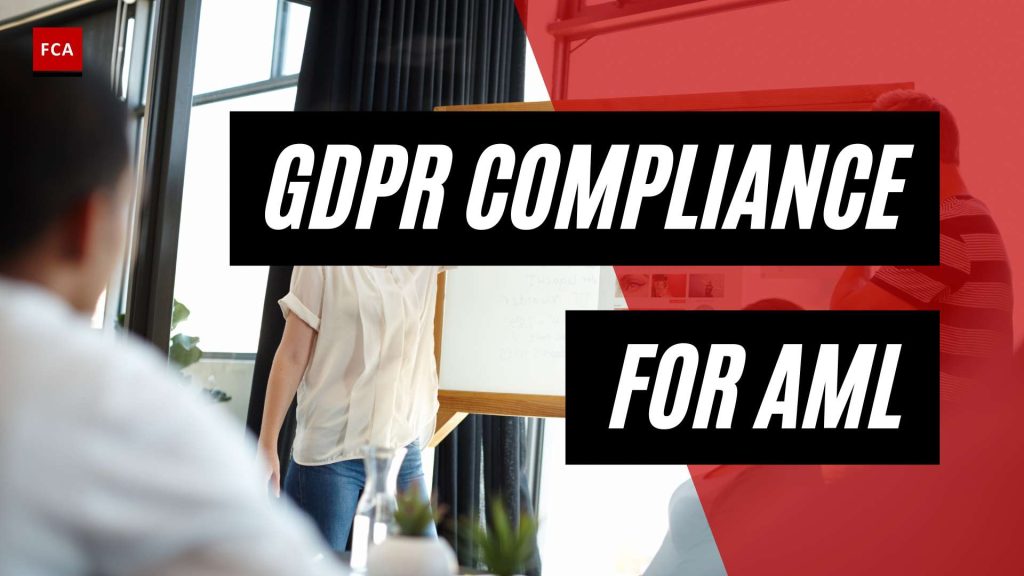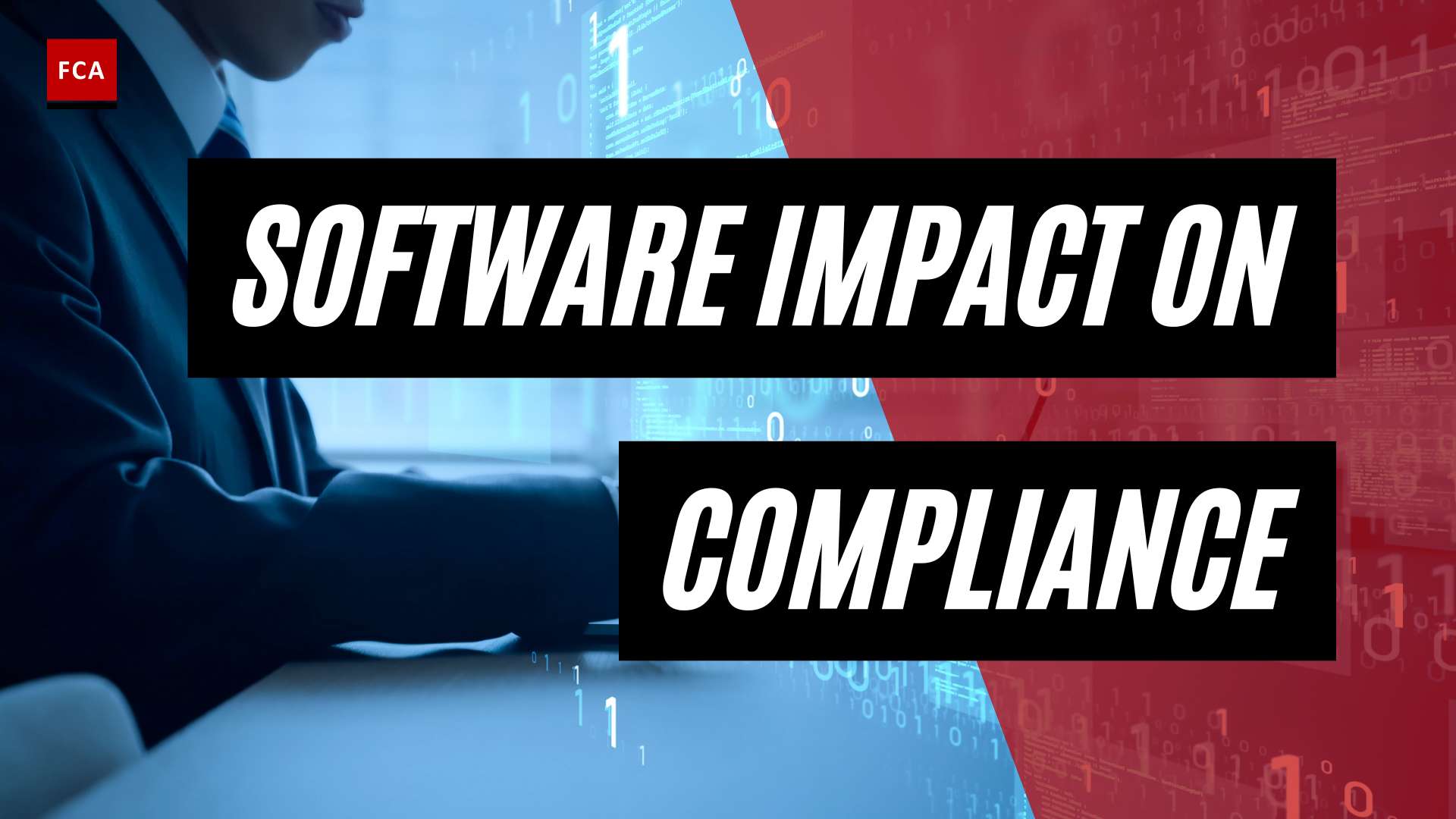Understanding GDPR Compliance for AML Software
In today’s data-driven world, the protection of personal information is of utmost importance. The General Data Protection Regulation (GDPR) is a significant data privacy law that aims to strengthen individuals’ fundamental rights to personal information and privacy (Flagright). When it comes to Anti-Money Laundering (AML) software, understanding and ensuring GDPR compliance is crucial.
Introduction to GDPR and AML Software
The GDPR, implemented on May 25th, 2018, significantly impacts how financial institutions handle customer data, creating challenges for AML efforts (ComplyAdvantage). This regulation extends beyond the European Union (EU), applying to businesses worldwide that offer goods or services to EU nationals or monitor their online behavior (Flagright). AML software plays a vital role in detecting and preventing money laundering activities, making it essential to navigate the intersection of GDPR and AML compliance.
Importance of GDPR Compliance for AML Software
Complying with GDPR regulations is crucial for AML software providers. Failure to adhere to GDPR guidelines can result in severe financial penalties, damaged reputation, and loss of customer trust (KYC Hub). Financial institutions conducting business globally are likely subject to multiple data privacy laws, including the GDPR, and compliance with these regulations is essential for organizations to operate legally and securely across different regions (Flagright). Non-compliance with GDPR regulations in the use of AML software can lead to administrative fines of up to 4% of the global annual sales or 20 million euros, emphasizing the need for adherence to GDPR guidelines.
Ensuring GDPR compliance in AML software helps protect the personal data of individuals, promotes data security, and fosters trust with customers. It requires AML software providers to establish robust data protection mechanisms, address data minimization principles, and implement accurate storage and security measures for personal data. By aligning AML software with GDPR requirements, organizations can mitigate risks, maintain compliance, and safeguard customer information.
In the following sections, we will delve deeper into the key considerations for GDPR compliance in AML software and explore the specific requirements and measures needed to ensure compliance.
Key Considerations for GDPR Compliance in AML Software
When it comes to AML software, ensuring compliance with the General Data Protection Regulation (GDPR) is of utmost importance. The GDPR imposes limitations on data collection, use, and storage, affecting how financial institutions handle customer data for AML compliance. Here are key considerations for GDPR compliance in AML software:
Principles of GDPR in AML Software Processing
AML software must adhere to the principles outlined in the GDPR, such as lawfulness, fairness, and purpose limitation of processing personal data (European Parliament). This means that personal data should only be collected and processed for specific, legitimate purposes related to AML compliance. Transparency in data processing practices and obtaining proper consent from data subjects are also essential.
Data Minimization in AML Software
Data minimization is a critical element of GDPR compliance for AML software. It involves ensuring that only necessary data is collected for processing purposes and that the data collected is relevant, limited to what is needed, and kept up to date (European Parliament). AML software providers should implement mechanisms to minimize the collection and retention of personal data, reducing the risks associated with unnecessary data exposure.
Accuracy, Storage, and Security of Personal Data in AML Software
GDPR requires AML software to adhere to accuracy, storage limitation, and security requirements for the personal data it processes (European Parliament). This includes implementing measures to ensure the accuracy and integrity of the data, as well as the secure storage and protection of personal data against unauthorized access, loss, or damage.
To comply with these requirements, AML software providers should prioritize data protection mechanisms, encryption protocols, and secure storage solutions. Regular audits and risk assessments should be conducted to identify and address any vulnerabilities or potential breaches (KYC Hub).
By considering these key aspects of GDPR compliance in AML software, organizations can ensure that their software aligns with the regulatory requirements and safeguards the personal data of individuals involved in anti-money laundering processes. It is crucial to stay up to date with evolving GDPR requirements and seek legal guidance to ensure ongoing compliance.
GDPR Requirements for AML Software
To ensure compliance with the General Data Protection Regulation (GDPR) while using AML software, certain requirements must be met. These requirements include providing information to data subjects, granting access and rectification rights, and implementing privacy policies and agreements.
Providing Information to Data Subjects
Under GDPR, data controllers must provide individuals with information about the processing of their personal data, including the purposes and legal basis for processing. This requirement applies to AML software as well, ensuring transparency and accountability. A clear and concise privacy notice should be provided, outlining the data processing activities and how the data subject’s rights can be exercised.
Access and Rectification Rights in AML Software
Data subjects have the right to access and rectify their personal data held by AML software. This means that individuals can request information about what data is being processed, how it is being used, and even request corrections if the data is inaccurate. AML software providers must have mechanisms in place to fulfill these requests promptly and efficiently, allowing individuals to exercise their rights under GDPR.
Privacy Policies and Agreements for GDPR Compliance
To comply with GDPR, AML software providers should have comprehensive privacy policies and agreements in place. These documents outline how personal data is handled, stored, and protected. They also specify the legal basis for processing personal data, data retention periods, and the use of any third-party processors. Privacy policies and agreements serve as a contractual framework for GDPR compliance, ensuring that personal data is processed in accordance with the applicable regulations.
It is important for AML software providers to be aware of the specific GDPR requirements for AML programs. This includes establishing a legal basis for collecting and processing personal data, ensuring data minimization, accuracy, storage limitation, and security (ComplyAdvantage). Adhering to these requirements helps maintain compliance with GDPR while effectively combating money laundering and terrorist financing.
By meeting the GDPR requirements for AML software, organizations can strike a balance between data privacy and effective AML measures. Implementing the necessary measures, such as providing information to data subjects, granting access and rectification rights, and establishing privacy policies and agreements, ensures that AML software is compliant with GDPR regulations and respects individuals’ data privacy rights.
Ensuring GDPR Compliance in AML Software
To ensure compliance with the General Data Protection Regulation (GDPR) in the context of Anti-Money Laundering (AML) software, there are several key considerations that need to be addressed. This section will explore the importance of a designated Data Protection Officer, the requirement for a UK Representative, and the need for support in licensing and compliance in global operations.
Designated Data Protection Officer
Under GDPR, organizations processing personal data, including AML software providers, are required to appoint a designated Data Protection Officer (DPO). The DPO serves as a crucial point of contact for both the organization and data subjects, ensuring that data protection practices are in compliance with GDPR requirements.
The DPO should have expertise in data protection laws and practices, as well as a thorough understanding of AML software processes. They play a vital role in overseeing data protection activities, advising on compliance strategies, and acting as a liaison with supervisory authorities and data subjects.
UK Representative for GDPR Compliance
For AML software providers operating outside of the European Union (EU), but offering services to individuals or entities within the UK, the appointment of a UK Representative is necessary to ensure GDPR compliance. This representative acts as a point of contact for UK data subjects and supervisory authorities, facilitating communication and addressing any data protection concerns.
The UK Representative should be located within the UK and authorized to act on behalf of the AML software provider. They play a significant role in ensuring that the organization complies with GDPR obligations specific to the UK, such as providing information to data subjects and addressing access and rectification rights.
Support for Licensing and Compliance in Global Operations
AML software providers often operate on a global scale, serving clients in various jurisdictions. To ensure GDPR compliance, it is essential to have robust support systems in place for licensing and compliance across these operations.
This support includes conducting thorough assessments of data protection requirements in each jurisdiction, ensuring that AML software processes align with local data protection laws. Additionally, maintaining proactive communication with regulatory bodies and staying up to date with evolving regulations are crucial aspects of global compliance efforts.
By prioritizing GDPR compliance and implementing appropriate measures such as a designated Data Protection Officer, a UK Representative, and comprehensive support for licensing and compliance, AML software providers can demonstrate their commitment to protecting personal data and meeting GDPR obligations.
In addition to these key considerations, AML software providers must also address data protection mechanisms and encryption, implement measures to avoid data breaches and unauthorized access, and understand the impact of GDPR on AML frameworks. By adhering to these requirements, organizations can ensure that their AML software operates in a manner that is compliant with GDPR and respects the privacy rights of data subjects.
Additional Considerations for AML Software Providers
When it comes to GDPR compliance for AML software, there are several additional considerations that AML software providers should keep in mind. These considerations focus on data protection mechanisms and encryption, avoiding data breaches and unauthorized access, as well as the impact of GDPR on AML frameworks.
Data Protection Mechanisms and Encryption
To align with GDPR requirements and protect sensitive personal information, AML software providers should invest in robust data protection mechanisms and encryption protocols. These measures help safeguard data from unauthorized access and data breaches. By implementing secure storage solutions and encryption techniques, providers can ensure that personal data processed within the AML software remains confidential and protected (KYC Hub).
Avoiding Data Breaches and Unauthorized Access
AML software providers must prioritize data security to avoid data breaches and unauthorized access. This involves implementing strict access controls and authentication mechanisms to ensure that only authorized personnel can access and handle personal data within the AML software. Regular security audits and vulnerability assessments should also be conducted to identify and address any potential vulnerabilities in the system.
Impact of GDPR on AML Frameworks
The implementation of GDPR has had a significant impact on AML frameworks. AML software providers need to ensure that their software aligns with GDPR regulations when processing personal data related to anti-money laundering activities. This includes data on beneficial ownership, politically exposed persons, and transaction records. Adherence to GDPR guidelines enhances trust between businesses and customers and helps maintain business integrity (European Parliament).
It is essential for AML software providers to understand the principles of GDPR in relation to AML software processing. This involves ensuring the lawfulness, fairness, and purpose limitation of the processing, as well as data minimization, accuracy, storage limitation, and security of personal data (European Parliament). AML software providers should also provide data subjects with information about the processing of their personal data, including access and rectification rights. Privacy policies, data processing agreements, and client privacy statements should be in place to comply with GDPR requirements (European Parliament).
By considering these additional aspects of GDPR compliance, AML software providers can ensure that their software not only meets regulatory requirements but also protects the personal data of customers effectively. Adhering to GDPR guidelines fosters trust, minimizes the risk of legal repercussions, and maintains the integrity of AML software operations.
GDPR Requirements for AML Software
To ensure compliance with the General Data Protection Regulation (GDPR) while maintaining effective Anti-Money Laundering (AML) operations, AML software providers must meet certain requirements outlined by the GDPR. These requirements focus on providing data subjects with information, granting access and rectification rights, and implementing privacy policies and agreements.
Providing Information to Data Subjects
Under the GDPR, AML software providers are obligated to provide data subjects with information regarding the processing of their personal data. This includes informing individuals about the purpose of the data processing, the legal basis for processing, and the retention period of the data (European Parliament). AML software providers should have transparent privacy policies and clearly communicate how personal data is handled and protected.
Access and Rectification Rights in AML Software
Data subjects have the right to access and rectify their personal data, as outlined in the GDPR. AML software providers must enable data subjects to exercise these rights by providing a mechanism for individuals to access their personal data held by the software and rectify any inaccuracies (European Parliament). This ensures that individuals have control over their personal information and can ensure its accuracy.
Privacy Policies and Agreements for GDPR Compliance
To maintain GDPR compliance, AML software providers should have well-defined privacy policies and agreements in place. These documents outline how personal data is processed, stored, and protected. Privacy policies should clearly state the legal basis for processing personal data, the retention period, and any third parties that may have access to the data. Additionally, agreements with third-party processors should include specific requirements for GDPR compliance, ensuring secure data transmission and adherence to GDPR regulations (ComplyAdvantage).
By addressing these GDPR requirements, AML software providers can ensure that their software operates in accordance with data protection regulations. This not only helps protect the privacy rights of individuals but also helps mitigate the risk of severe fines and penalties associated with non-compliance. It is essential for AML software providers to prioritize the principles of GDPR in their data processing activities, including data minimization, accuracy, storage limitation, and security (European Parliament). By doing so, they can build trust with their clients and demonstrate their commitment to data privacy and security in the AML field.








